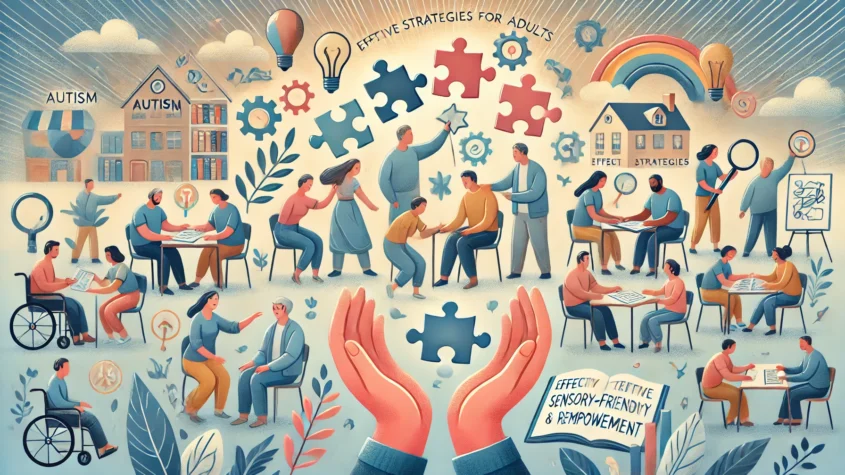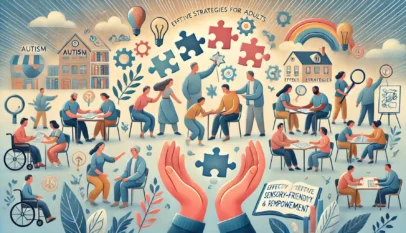Programs for Young Adults with Autism: Empowering Pathways to Independence
Programs for young adults with autism play a crucial role in fostering independence and social skills. These programs often focus on life skills, job readiness, and community engagement, helping participants navigate adulthood with greater confidence and success. Access to tailored support can significantly enhance quality of life and prepare individuals for the challenges they may face.
Many organizations offer structured environments where young adults can develop essential skills in a supportive setting. These programs may include vocational training, social activities, and mentorship opportunities that encourage personal growth and peer interactions. Participants benefit from learning in a way that aligns with their unique needs and strengths.
With a growing awareness of autism, more resources are becoming available. Young adults, families, and communities are beginning to see the positive impact these programs can have on achieving greater independence and fulfilling potential.
Understanding Autism Spectrum Disorder
Autism Spectrum Disorder (ASD) is a complex neurodevelopmental condition characterized by a range of symptoms and challenges. Understanding its definitions and the specific issues faced by young adults with autism provides essential insights for developing effective support programs.
Defining Autism Spectrum Disorder
Autism Spectrum Disorder encompasses a variety of neurodevelopmental conditions identified by difficulties in social interaction, communication, and repetitive behaviors. The term “spectrum” highlights the wide range of symptoms and their varying severity.
ASD affects individuals differently, leading to distinct profiles based on their strengths and challenges. Some may excel in areas such as mathematics or music, while others may struggle with daily living skills. Diagnosing ASD typically involves a combination of behavioral assessments and developmental history.
Challenges Faced By Young Adults with Autism
Young adults with autism encounter unique challenges that can affect their quality of life. Social skills deficits are common, making it difficult to form friendships or navigate workplace dynamics. They may struggle with communication barriers, leading to misunderstandings in social and professional contexts.
Additionally, many experience sensory sensitivities, which can contribute to anxiety in overstimulating environments. Transitioning from structured school settings to independent living poses further difficulties, such as finding suitable employment and managing daily responsibilities. These challenges highlight the need for targeted programs that provide support and resources tailored to their specific needs.
Programs and Services for Young Adults with Autism
Programs and services designed for young adults with autism focus on enhancing their educational experiences, vocational skills, independent living capabilities, and social interactions. These components work together to build a supportive pathway toward a more fulfilling life.
Educational Programs
Educational programs for young adults with autism often emphasize personalized learning approaches. They can include specialized curricula tailored to individual strengths and challenges. Many institutions offer transition programs that help bridge the gap between high school and higher education or vocational training.
Support often includes tangible resources like assistive technology, mentoring, and individualized educational plans (IEPs). These programs may also include life skills training, which equips students with practical knowledge for daily challenges.
Access to resources such as counseling services and peer support groups further enhances educational experiences. This holistic approach promotes both academic success and personal growth.
Vocational Training and Employment
Vocational training is crucial for preparing young adults with autism for the workforce. Many programs focus on skills development in specific fields like technology, healthcare, or hospitality.
Participants often engage in job readiness workshops, resume building, and interview preparation. Some programs also provide job coaching and internship placements to ensure hands-on experience.
Employers are increasingly recognizing the value of neurodiversity in the workplace. Partnerships between vocational programs and businesses can lead to enhanced employment opportunities.
Through these initiatives, young adults with autism can build confidence and gain essential skills that increase their employability.
Independent Living Support
Independent living support programs aim to foster autonomy among young adults with autism. These programs often cover essential life skills, such as budgeting, cooking, and personal care.
Beyond basic skills, some programs provide resources for finding housing, managing time, and organizing daily tasks. Support may come from trained staff or peer mentors who understand the unique challenges these young adults face.
Opportunities for social interactions and community involvement are also integral to these programs. By facilitating connections, young adults can build a support network that enhances their independence.
Social Skills Development
Social skills development is vital for young adults with autism, enabling meaningful interactions in personal and professional contexts. Programs often include structured group activities, role-playing scenarios, and communication exercises.
Classes may focus on specific skills, such as recognizing social cues, initiating conversations, and managing conflicts. These settings create opportunities for practice in a safe environment.
Family involvement can also play a key role in this development. Training for families can equip them with tools to support their loved ones effectively.
By emphasizing practical social skills, these programs prepare young adults for the complexities of interpersonal relationships.
Zudio Franchise: A Guide to Profitable Retail Opportunities
Zudio franchises represent an exciting opportunity in the retail sector, particularly for …











